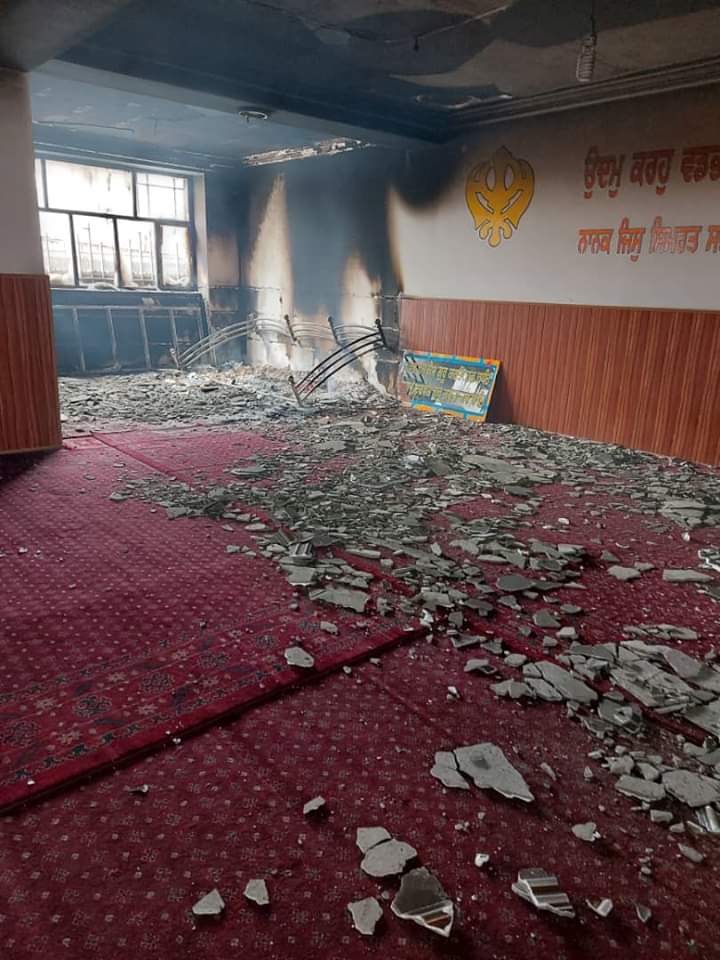Afghanistan: Taliban ceasefire brings welcome reprieve to escalating brutal violence
The ceasefire was declared solely for Eid festivities.

By IAR Desk
Kabul: Beginning today a three day Eid ceasefire has been offered by the Taliban.
“Do not carry out any offensive operations against the enemy anywhere, if any action is taken against you by the enemy, defend yourself,” Zabihullah Mujahid, a Taliban spokesman, tweeted. The ceasefire was declared solely for Eid festivities.
The ceasefire has been welcomed by President Ashraf Ghani who had declared outright war on the organization following a brutal attack on a Kabul maternity hospital on May 12, killing 24 persons, mostly women and new born babies. Simultaneous attacks were also launched on a funeral procession in Nangarhar province, killing 19 civilians.
The UN’s Afghanistan Mission (UNAMA) has in it’s preliminary figures indicated a trend of escalating civilian casualties in April from operations conducted by both the Taliban and the Afghan National Security Forces (ANSF).
Attacks have also been claimed by Islamic State-Khorasan Province (ISKP), like the one on a historic Sikh gurudwara on March 25, which killed 25 civilians, including many women and children.
UNAMA recrrds show that the Taliban were responsible for 208 civilian casualties in April, an increase of 25 per cent in comparison to April 2019 and at similar levels as March 2020. Civilian casualties attributed to the ANSF for April 2020 numbered 172 civilians, an increase of 38 per cent compared to April 2019 and 37 per cent higher than March 2020. This data is provisional, subject to further review for UNAMA’s mid-year protection of civilians report.
In a statement UNAMA said “The United Nations is deeply concerned by both the increase in civilian harm and the striking deterioration of parties’ respect for international humanitarian law, demonstrated by the recent shocking attacks on healthcare facilities and threats to healthcare workers, failures to take all feasible precautions in conducting airstrikes, and the use of large amounts of explosives in civilian-populated areas.”
Since 1 April, in addition to the unclaimed attack on a hospital in Kabul last week, UNAMA has documented the abduction of 15 healthcare workers by the Taliban as well as a threat to healthcare workers and confiscation of medical supplies by the ANSF.
Medical personnel and facilities have special protection from attack. Any incidents affecting people, places and supplies necessary for healthcare provision can have serious and wide-ranging consequences, particularly during the COVID-19 crisis. Intentional attacks on civilians and civilian objects, including medical facilities or protected personnel, may amount to war crimes.
Deborah Lyons, the UN Secretary-General’s Special Representative for Afghanistan and head of UNAMA has welcomed the ceasefire.
“Reason to hope! A welcomed move by Taliban. Well responded by Afghan government. Echoes also UN Secretary-General Guterres’ call for ceasefire to focus on the new enemy, COVID virus. Let wisdom and compassion of Eid convince all to make this permanent and move to peace talks,” she said in a statement.
She had earlier called for those “in positions of power to do everything possible to stop the violence and to respect this time of reflection and tolerance.”
Meanwhile, the Afghan government has begun the process of releasing upto 2000 Taliban prisoners as a “goodwill gesture” reciprocating the Taliban’s ceasefire offer.
It is not clear what action each side will take at the end of the ceasefire. The intra–Afghan talks mandated by the US Taliban peace accords signed on February 29 this year.